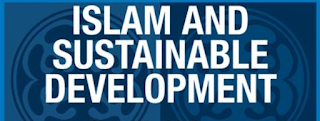Topic 2 : Islam & Sustainable Development
The concept of sustainable development in Islam can be defined as,
“the balanced and simultaneous realization of consumer welfare, economic efficiency, attainment of social justice, and ecological balance in the framework of an evolutionary knowledge-based, socially interactive model defining the shuratic process” (EcoMENA, 2019)
Spiritually as A Fundamental of SDG
- This means the quality of being concerned with the human or soul as opposed to the material or physical things.
- Spiritually are related to sustainable development and actually have deep truths by which we are advised to live and which have the ability to guide and motivate us of being responsible.
- Being responsible for achieving the concept of sustainable development in Islam.
- Prohibit poverty as it's close to disbelief which is kufr.
- Based on sharing & caring in wealth distribution.
2. Environmental
- Manage the environment wisely manifesting their trusteeship to Allah.
- Islam reiterates that these natural resources have been created by Allah the Almighty with the purpose principally to provide sustenance to man’s life on earth.
- A process of creating a sustainable, prosperous environment that promotes well-being to the community by knowing what people need from the place that they live and work.
- Islam encourages Muslims to carry out responsible practices only for the sake of Allah and does not pursue any kind of benefits in response to welfare activities.
|
MAQASID
AL-SHARIAH Realizing the human well-being by enhancing welfare, or benefit
(maslahah) of the people on one hand and preventing harm (mafsadah) on the
other. |
||
|
Maqasid Daruriyyat |
Maqasid Hajiyyat |
Maqasid Tahsiniyyat |
● Religion (Al-din) ● Life (Al-nafs) ● Intellect (Al-‘Aql) ● Wealth (Al-Mal) ● Lineage (Al-Nasb)
|
|
|




Comments
Post a Comment